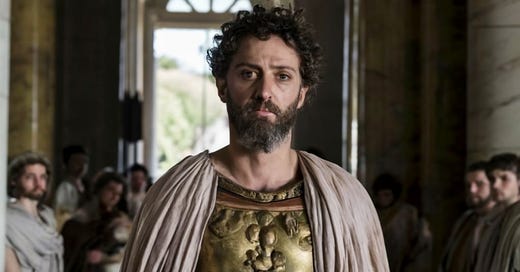With all the power of Rome behind him, the emperor Marcus Aurelius sat ensconced in luxury and wrote in his journal: “It is possible to be happy, even in a palace1.”
Seven hundred years earlier in Nepal, Prince Siddhartha Gautama came to the opposite conclusion.
The soon-to-be-Buddha was raised in sheltered luxury inside his father’s palace. He had a wife, a son, and state duties to attend to. But he abandoned them all to become a wandering ascetic, eventually achieving enlightenment and founding Buddhism.
Few contrasts better highlight Marcus’s and Siddhartha’s differing approaches to spiritual progress and the good life.
To Retreat or Not to Retreat
The Buddha suggests laypeople — most of humanity — take on supporting roles assisting the serious spiritual seekers. They’re to provide monks with clothing, food, and shelter, and perhaps do some light meditation and other devotional acts while contending with life’s challenges. These people might earn a better life in their next incarnation, but aren’t going to reach enlightenment.
Stoicism has no laypeople. You’re a Stoic “prokoptôn” (someone making progress), or you’re not. Stoics try to do what life requires with virtue, and when life is hard, there are more opportunities to practice. Stoics are concerned with this life, and this moment, because that’s all that’s certain.
Buddhist monks retreat from society to free themselves of distractions and make spiritual progress easier. Stoics aren’t monks. They don’t retreat. Instead, they do something revolutionary — dissolve the bonds between uncontrollable circumstances and the meaning humans invest them with. Only after doing this can we live well, in a palace or a hovel, at play or in the grind.
Stoicism’s goal isn’t a better future incarnation or an escape from the cycle, but eudaimonia (flourishing/happiness). It’s an internal state of mind achievable anywhere under any circumstances.
If C-suite life is hard, your house is full of screaming kids, or you’re in chronic pain, the Stoic approach is still open to you, no escapism necessary.
What’s the alternative? Slavery. We remain, like most humans, emotional slaves to circumstances largely outside our control. Stoicism is about freedom.
Marcus’s Tools
Using the Dichotomy of Control, journaling, and other spiritual exercises, Stoics devalue their circumstances and find meaning in what they have control over — virtue and how they respond to life.
These tools change cognition and the emotions stemming from it. They pry meaning free from circumstance — from physics — and let us craft our own meaning. They’re incredibly powerful tools, perhaps the greatest technologies ever created for mental and spiritual health.
Marcus Aurelius talks about applying these technologies, and how they become a very different retreat than what the Buddha indulged in.
“No retreat offers someone more quiet and relaxation than that into his own mind, especially if he can dip into thoughts there which put him at immediate and complete ease: and by ease I simply mean a well-ordered life. So constantly give yourself this retreat, and renew yourself. The doctrines you will visit there should be few and fundamental, sufficient at one meeting to wash away all your pain and send you back free of resentment at what you must rejoin.2
One path finds the abandonment of life convenient or even necessary for spiritual progress. The other demands we engage with life, to throw ourselves into the deep end.
Both have merit, but the sort of life you can live while practicing them looks quite different.
Marcus Aurelius, Meditations, 5.16. Various translations render this happy/virtuous/live well. Marcus explores the idea of palace life impeding the good life in 6.12 and 8.9
Marcus Aurelius, Meditations, 4.3







I find many Buddhist meditation practices have begun to integrate into my day to day life in a way that leads very much to a better day to day life. There’s the extremes of any practice that work for some, but consistent practice has transformed my very engaged life
I haven’t done many stoic practices yet but I’m very curious. I’ve read some William Irvine which caught my attention. Do you have a recommended starting point?
Well, Budha take the exreme route from lavish life to extreme poverty. But in the end, he abandoned those two extremes way of life and choose middle way. This is how he achieved enlightnment. And many lay people( not monks) also achieve enlightment by following the middle way. So it is not true that to gain enlightment in Buddhism you have to become a monk.